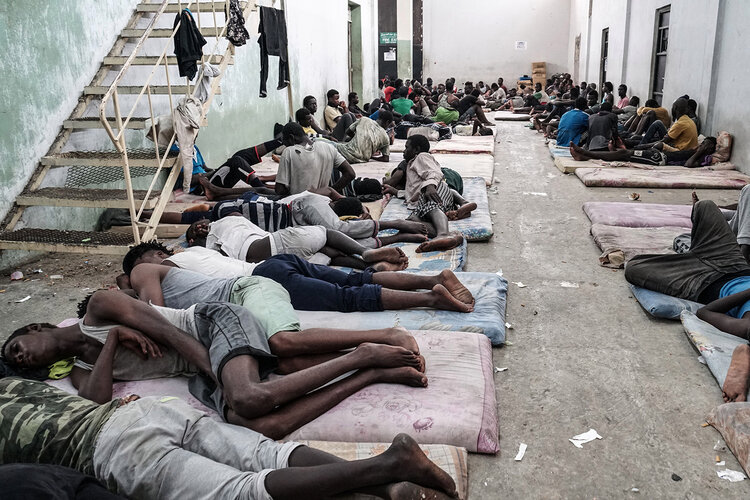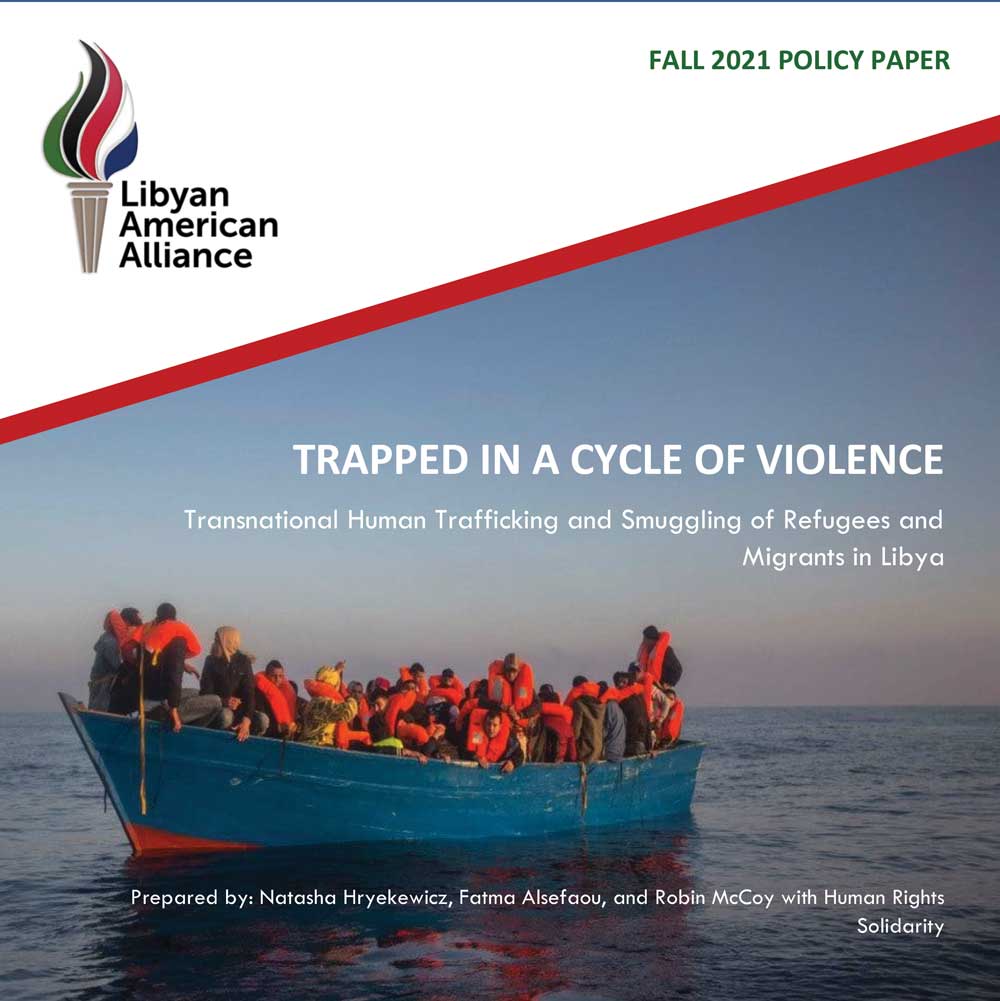Refugee and Migrant Crisis

Click on the categories below to read more about the refugee & migrant crisis & other human right violations occurring in Libya. Continue scrolling to read about LAA’s advocacy for the rights of refugees & migrants in Libya.
In partnership with the Libya-based human rights organization, Human Rights Solidarity, the research team at the Libyan American Alliance released a policy paper containing both short-term and long-term policy recommendations for Congress to pressure the Biden administration to use diplomatic leverage, or a mixture of measures, to pressure all actors exacerbating the situation in Libya. LAA has attended numerous events and meetings, and hosted multiple closed-door conversations, with influential think tanks, non-governmental organizations, and Congresspersons, such as: Senator Chris Murphy (D-CT), Representative Ilhan Omar (D-MN 5th), the Atlantic Council, the Middle East Institute, the International Rescue Committee, and MSF. Additionally, LAA directly works with a group of foreign policy, immigration, and Libya experts, including: Dr. William Lawrence, Mr. Jonathan Winer (Former Special Envoy for Libya), and Mr. Frederic Wehrey (Senior Fellow in the Middle East Program at the Carnegie Endowment for International Peace).
Traditionally, Libya has served as a destination for migrant workers from North African and sub-Saharan countries due to its geographic proximity to the Mediterranean Sea and Europe. In 2011, after the fall of the Gaddafi regime, perpetual political uncertainty, violence, and insecurity plagued Libya, as various actors struggled for power, legitimacy, and control. Foreign powers and non-state actors have intensified violence and instability, causing a dire humanitarian crisis. The collapse of a transparent justice system, obstructed public services and governmental institutions, minimal employment opportunities, and large quantities of conflict-induced displacement have resulted in human smuggling and trafficking becoming a means of survival for militia groups, serving as its primary income source.
Migrant and refugee smuggling is also an alluring business because it provides militias with large quantities of foreign currency. Various detention centers have been established across the country for migrants and refugees, where different militias embezzle funds delegated for improving the centers while extorting funds from migrants and exploiting them with forced labor and other human rights violations. Militias have significant influence and control over the Libyan economy, allowing prominent amounts of European funding to be diverted to complex networks of militias, traffickers, and coast guard members. This perpetuates Libya’s systemic circular economy where the same militias that help smuggle and detain migrants weaken government institutions and perpetuate a cycle of violence.
Refugee and migrant populations are afforded no legal protections or options for legal redress or appeal to forced expulsions, leaving them with very limited choices: arbitrary detention; kidnapping for ransom payments; forced expulsion and deportation; risk of being shot while fleeing; trafficking; or waiting until their detention center is possibly bombed in ongoing conflict. Further, Libya’s criminalization of irregular entry into the country and the lack of an asylum process have institutionalized complete impunity for those perpetrating such systematic human rights abuses at detention centers and holding facilities.

